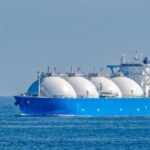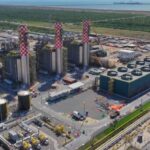Energy News Beat
Filipino seafarers represent the largest global crew contingent but are we doing enough to support them for tomorrow’s shipping industry, asks Mailyn Borillo, managing director, OSM Thome Philippines.
Filipino seafarers remain an essential pillar of global maritime operations. Representing more than a quarter of the world’s maritime workforce, they are known for their resilience, loyalty, and dedication – contributing quietly but significantly to the world economy. Each year, over 400,000 Filipino seafarers are deployed abroad, generating more than USD 6.7 billion in remittances and reinforcing the Philippines’ position as a leading maritime labour provider.
This strength stems from the country’s deep maritime tradition, supported by over 90 maritime higher education institutions. However, as the global shipping industry rapidly evolves – shaped by digitalisation, decarbonisation, and new safety standards – the basic systems supporting Filipino seafarers must also transform to meet growing demands.
Closing the recruitment gap
For more than two decades, the maritime industry has anticipated a looming seafarer shortage. That forecast is now reality. Despite thousands of maritime graduates annually in the Philippines, less than 10% are absorbed into seafaring roles. This gap is not just a talent mismatch – it’s a lost opportunity.
A significant barrier to employment is the insufficient availability of onboard training slots. Shipowners and stakeholders must invest in turning maritime graduates into fully-fledged maritime professionals. Beyond cadetship programs, emphasis must also be placed on ratings development.
The industry also needs to move beyond strategy and embed inclusivity in daily operations. Women remain an untapped 50% of the talent pool. Awareness must start early – and real support structures around maternity, safety, and family dynamics must be prepared in advance of female integration onboard.
Rethinking retention and welfare
Retaining talent is not just about loyalty – it’s about continuous, holistic development. With vessel automation and emerging technologies, seafarers need ongoing training to remain competent and confident. Digital upskilling must be accessible, regular, and industry aligned.
Mental health is equally critical. Emotional well-being, bolstered by wellness programs and stable internet access onboard, helps seafarers manage isolation and stay connected with loved ones.
Between contracts, reintegration support – covering health, financial planning, and career guidance – ensures a smoother transition from sea to shore. Meanwhile, empowering families through life skills programs such as financial literacy, health, wellness and psychological support provides seafarers with strength and peace of mind.
Strengthening legal and institutional support
The Magna Carta for Filipino Seafarers represents a significant step forward in safeguarding the rights and welfare of maritime professionals. Once fully enacted, this legislation aims to institutionalise key protections in areas such as training, employment, repatriation, and grievance handling – aligning national practices with international labour standards.
More importantly, it seeks to uphold dignity, fairness, and accountability throughout a seafarer’s entire career. To ensure its success, both local and international stakeholders must remain actively engaged and contribute to the shaping and implementation of government policies and legislation.
Strengthening the shore organisation
The performance and well-being of seafarers are closely tied to the strength of the shore organisation behind them. Effective support – both while they’re onboard and during their time ashore – starts with capable, well-trained shore teams.
Bureaucratic and manual procedures can be burdensome for seafarers. Therefore, continuous improvement of systems and internal processes is crucial.
Further, seafarers are not just numbers – they need human resource professionals who can truly engage with them. It’s essential to invest in the development of shore staff, not only to enhance their technical capabilities but, more importantly, to strengthen their people and leadership skills.
When we operate efficiently onshore, we create more meaningful employment for seafarers, build high-performing crews, and help position the maritime industry as a strong, attractive career path for future talent.
A shared responsibility for action, not just discussion
While a ship can be built in a few years, producing a fully qualified, experienced, and licensed Senior Officer takes a decade or more. This underscores the value of investing in long-term seafarer development to ensure a sustainable maritime industry.
Supporting seafarers requires a united effort – from ship owners, ship managers, crew managers and training institutions to government bodies and international partners. By investing in Filipino seafarers through inclusive recruitment, continuous development, legal protections, and efficient shore organization, we can foster a more sustainable and people-centred maritime industry.
Filipino seafarers have long embodied excellence at sea. It is now our collective responsibility to ensure they continue to sail forward with greater opportunities and dignity.
The post Empowering Filipino seafarers for a sustainable global maritime future appeared first on Energy News Beat.









